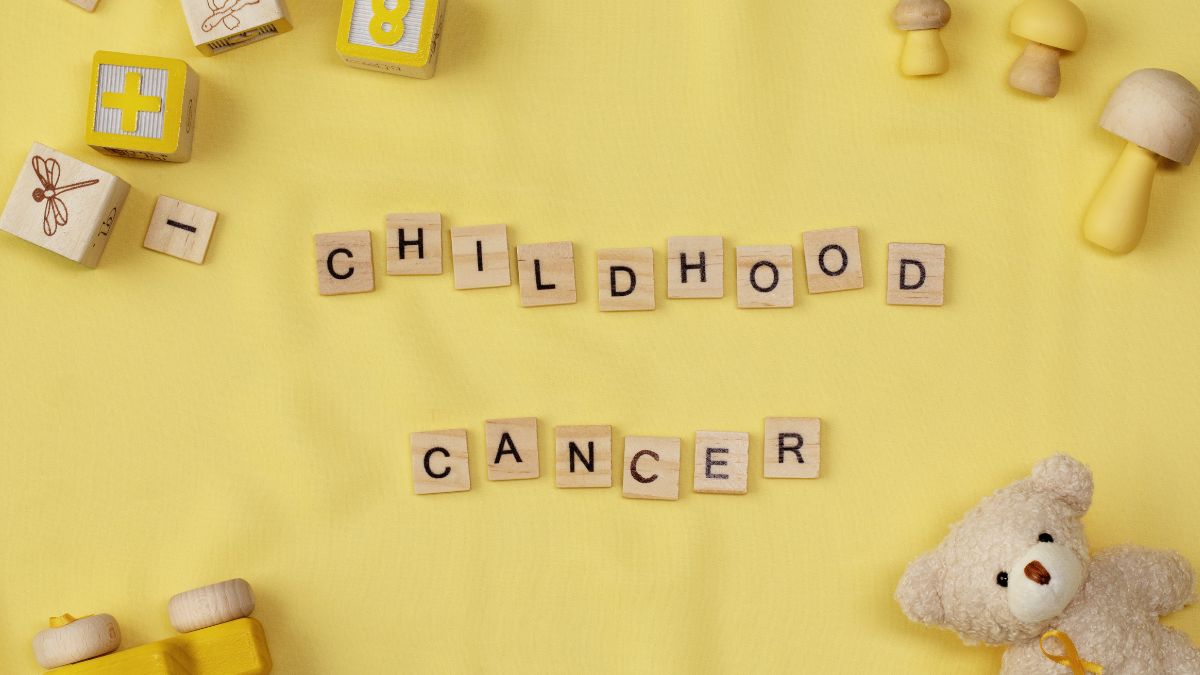
There is a misconception that cancer is a disease that affects only adults. Children also suffer from various types of cancer, which are very different from adult cancers. Since February 15 is International Childhood Cancer Day 2023, the OnlyMyHealth editorial team talked to Dr Juhi Shah, Consultant Paediatric Oncology, Fortis Hospital Mulund, to learn more about childhood cancer and the need for early diagnosis and treatment. The most common type of childhood cancers is leukaemia, brain tumours, adrenal gland tumours, and lymph nodes tumours.
Childhood cancer not only affects the child but has a physical, mental, emotional, and financial impact on the family, especially their parents. Cancer treatment can be a long journey, right from diagnosis to cure, where parents often become the primary caregivers.
What Are Childhood Cancers?
Cancers occurring in children in the age group of zero to 18 years are called childhood cancers. Childhood cancers are broadly divided into two groups: blood cancers and solid tumours. The most common cancer is leukaemia, of which acute lymphoblastic leukaemia is the most common in which the body's white blood cells are affected, stated Dr Shah. She added that the second most common cancer is brain tumours, followed by neuroblastoma (tumours of the adrenal gland) and non-Hodgkin's lymphoma (tumours of the lymph nodes).

Also Read: Can Sanitary Pads Cause Cancer? Doctor Answers
How Many Childhood Cancers Are Curable & Genetic?
Childhood cancers have a very high cure rate. 80% to 90% of all childhood cancers are curable. Only a minority of childhood cancers are genetic, approximating six to 10% of all cancers and the most common being retinoblastoma, said Dr Shah.
She emphasised that early diagnosis helps pick out these cancers in their early stages. The majority of childhood cancers diagnosed in early stages can be curable for life.
How Are Cancers Treated When They Are Curable?
According to Dr Shah, blood cancers like leukaemias and lymphomas are treated with chemotherapy only. Brain tumours and solid tumours require multimodality treatment in the form of chemotherapy, surgery, and radiotherapy. Difficult-to-treat cancers which do not respond to the mentioned treatments need advanced treatments, like bone marrow transplantation and immunotherapy.
Also Read: Spine Cancer: Symptoms, Risk And Treatment
Why is Regular Cancer Screening Necessary For Children?
As per Dr Shah, cancer screening in children is important in certain situations.
- A child with a family history of cancer, diagnosed at an early age, in parents or close relatives.
- When siblings are diagnosed with hereditary cancer, screening becomes important.
In these cases, genetic testing of the child and family is generally advised. These children are put under a surveillance program which involves periodic checkups and testing by the paediatric oncologist to detect cancer, if any, at an early stage.
Role Of Parents When Their Child Is Fighting Cancer

Childhood cancer not only affects the child but has a physical, mental, emotional, and financial impact on the family, especially their parents. It is a long journey, right from diagnosis to cure, where parents are the primary caregivers. Their role lies in accepting the diagnosis, comforting the child during treatment, taking strict precautions to prevent infections while on chemotherapy, and helping them rehabilitate back to school, college, and society as survivors.
Image Credits: freepik
How we keep this article up to date:
We work with experts and keep a close eye on the latest in health and wellness. Whenever there is a new research or helpful information, we update our articles with accurate and useful advice.
Current Version